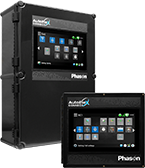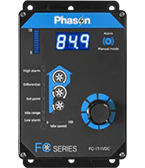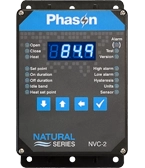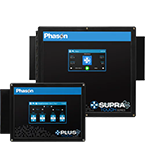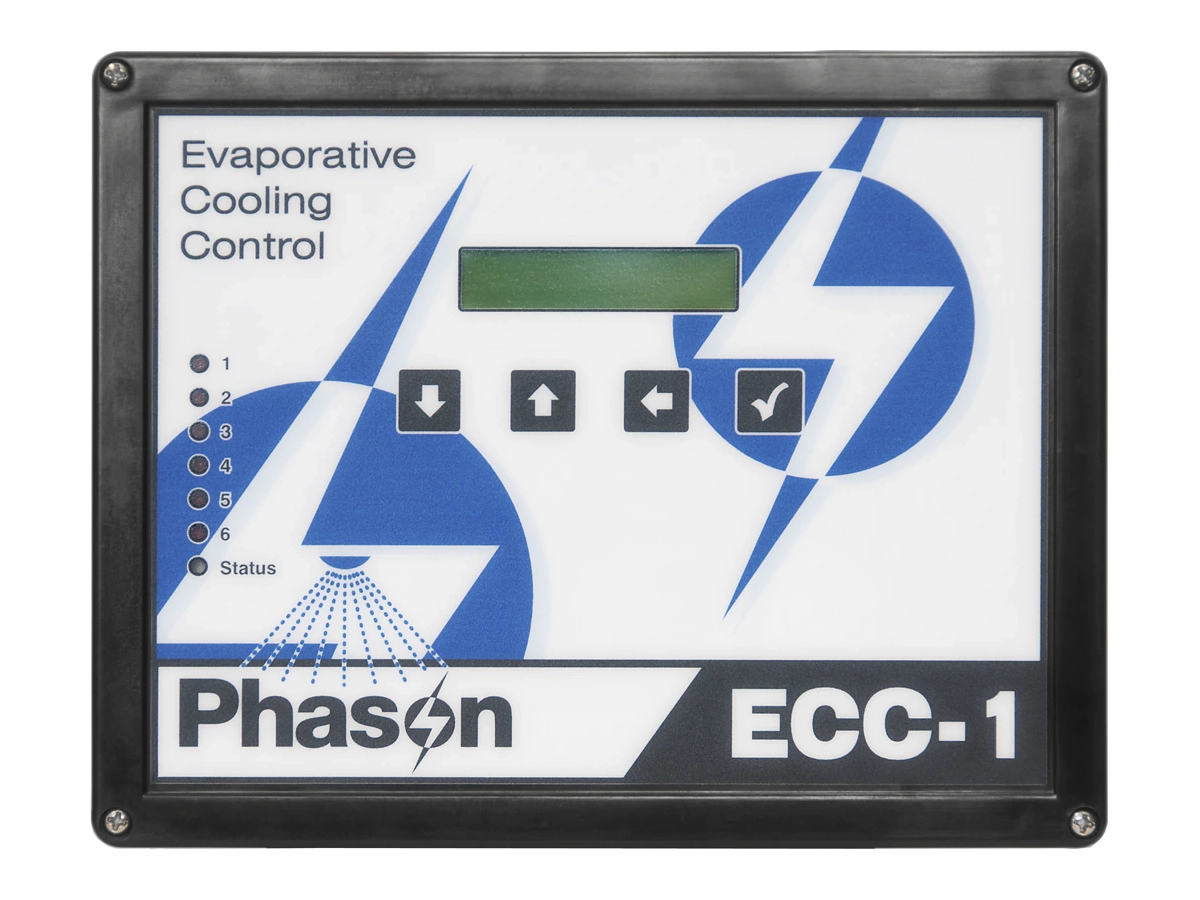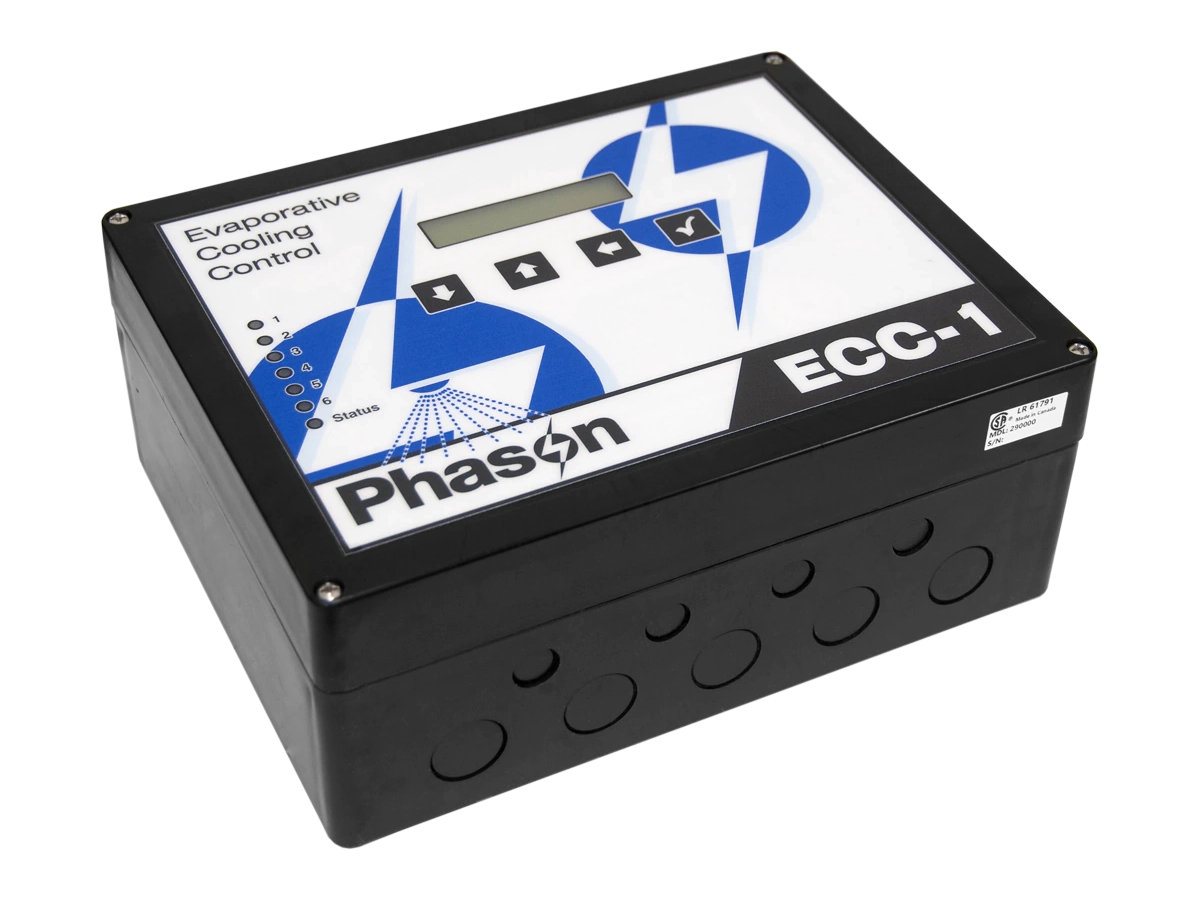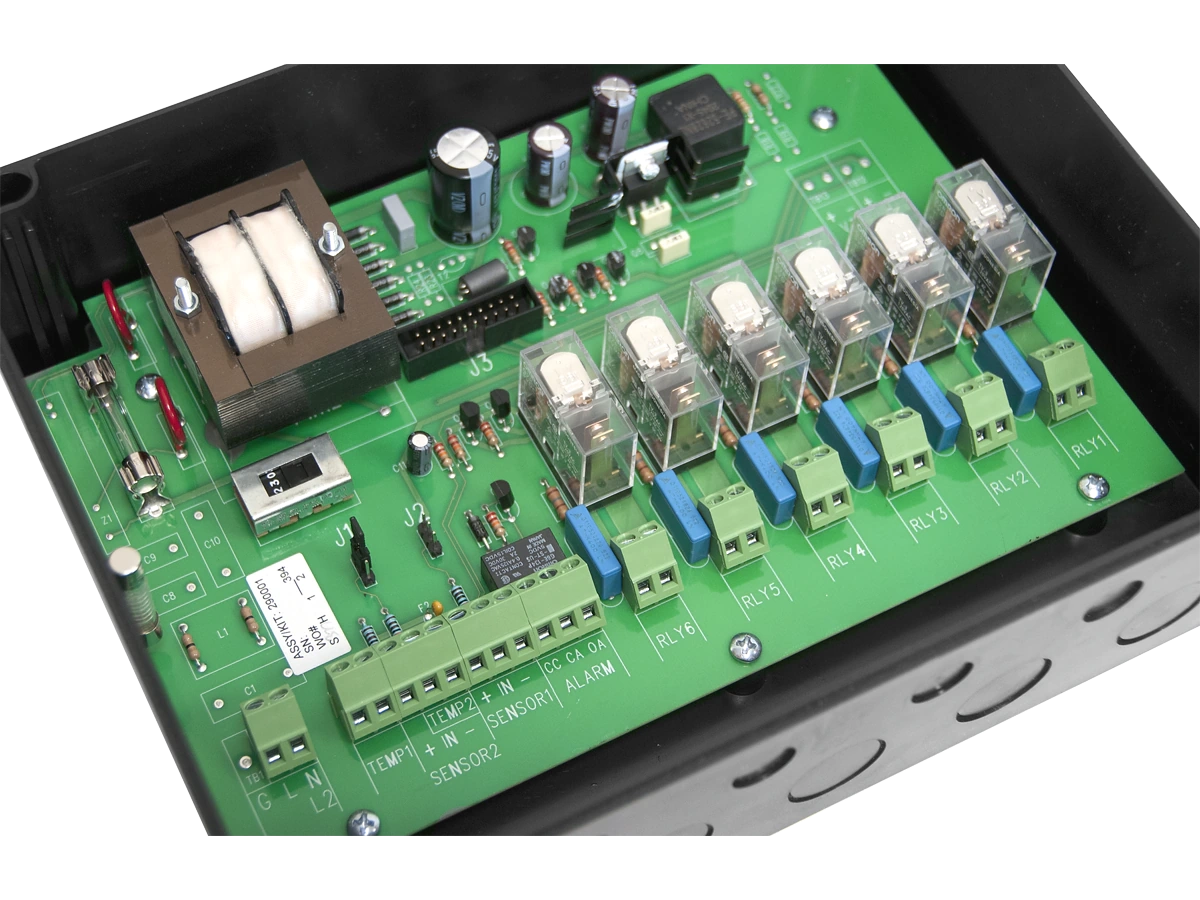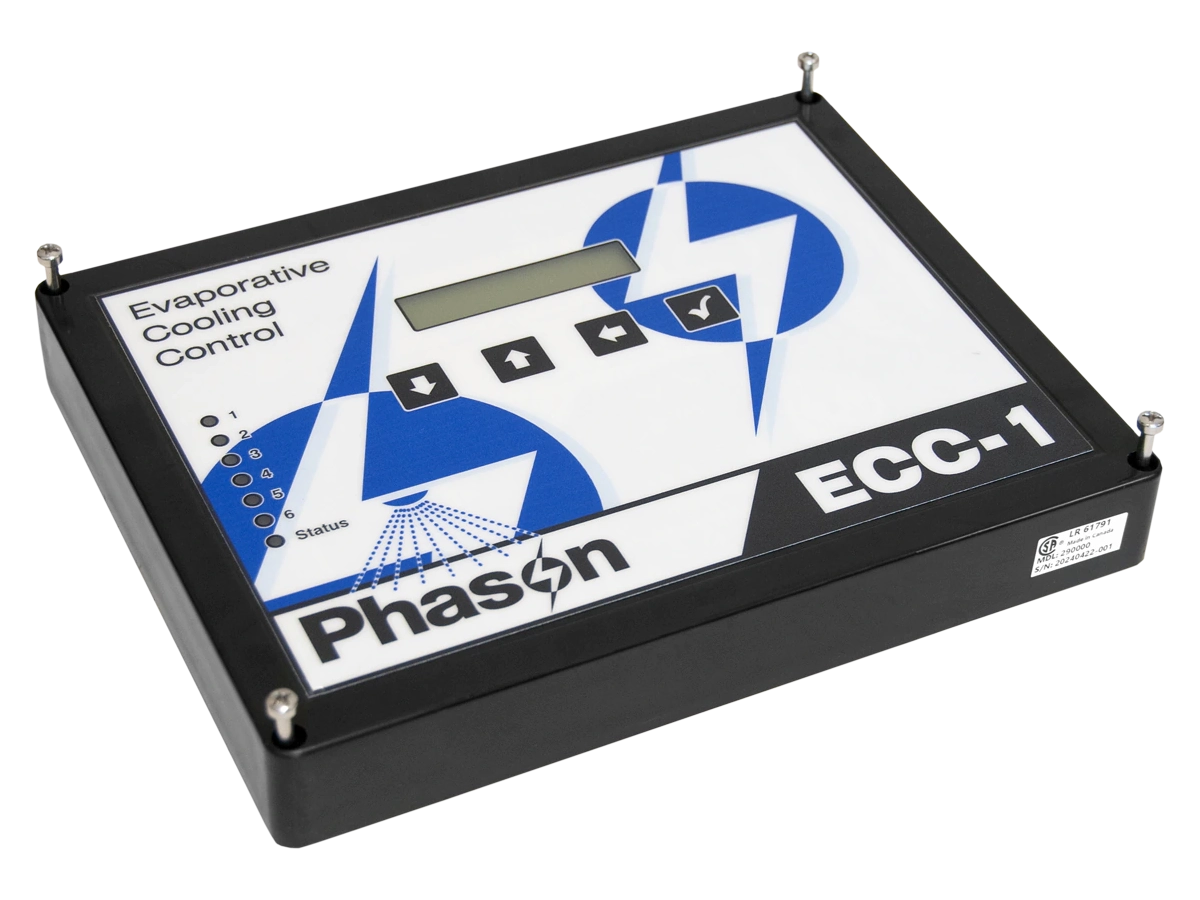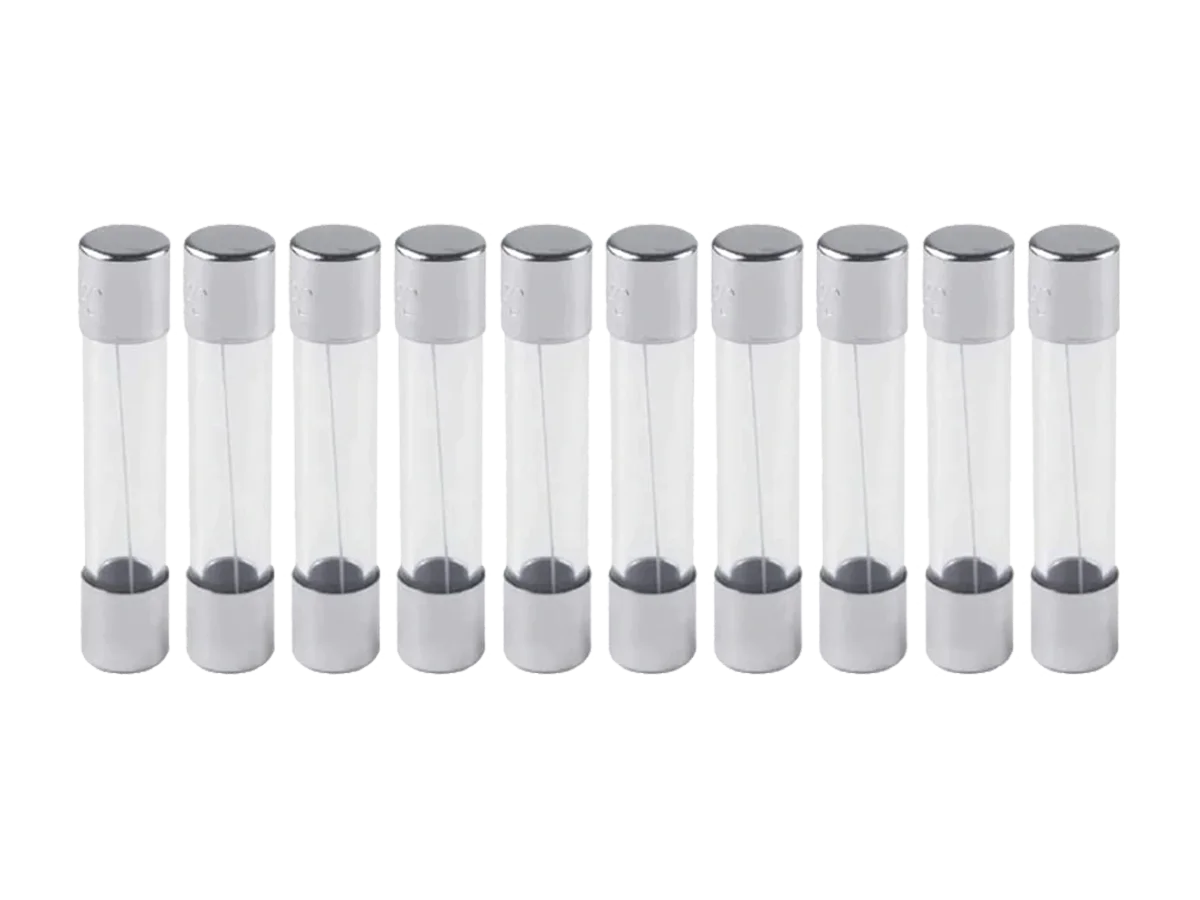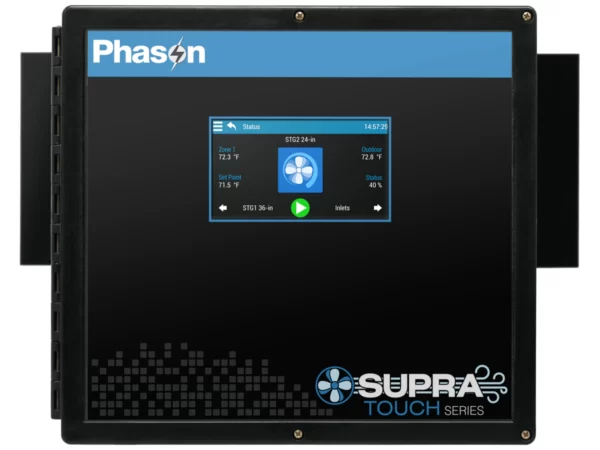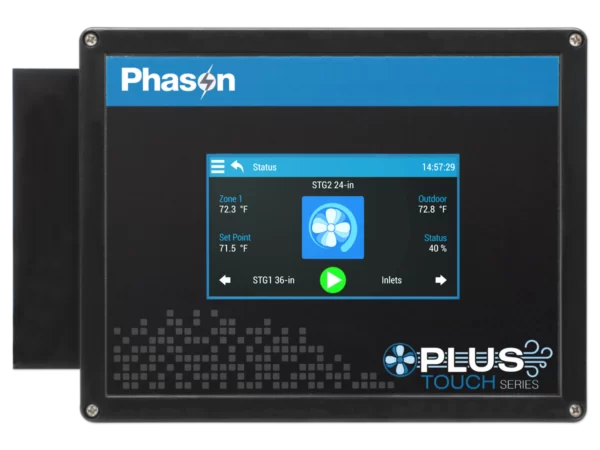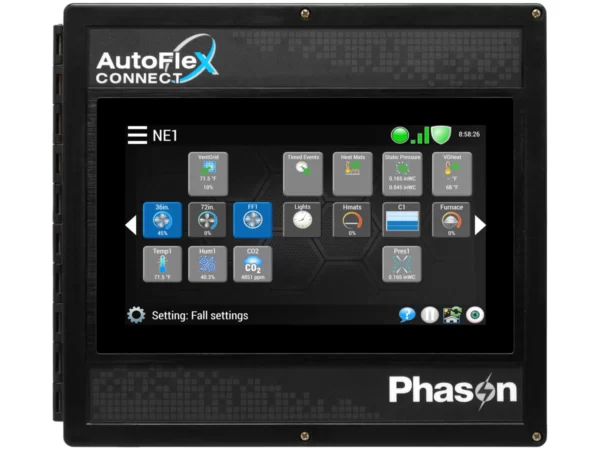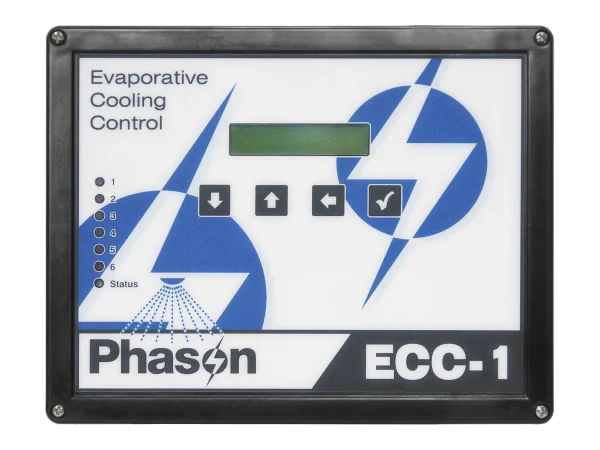- Two automatic operation modes:
- Soaker Mode for direct evaporative cooling
- Mister/Fogger Mode for indirect evaporative cooling
- Temperature-based duty cycle operation, programmable range: 32 to 113°F (0 to 45°C)
- Active/inactive time programming
- Optional humidity monitoring with high humidity bypass
- Manual control mode for testing relays and equipment
- Information logging and display
- High and low temperatures for the current and previous day
- Total relay ON durations for the current and previous day
- Six relay stages for controlling sprinkler solenoids, water pumps, or single-speed fans
- Alarm relay that indicates power failures, probe damage, or high/low temperatures
- Temperature sensor; 30 feet, extendable to 500 feet
- LCD display that shows status and programming information
- Status lights
- Four-button keypad
- Real-time clock
- Power-failure settings protection
- NEMA 4X enclosure (Corrosion-resistant, water-resistant, and fire-retardant)
- CSA approval
- Limited warranty
Evaporative Cooling Control
Model: ECC-1
Evaporative Cooling Control
Model: ECC-1
Control sprinklers, pumps, and fans for direct or indirect cooling systems
The Evaporative Cooling Control has six relays you can program to control a combination of sprinkler solenoids, pumps, and/or single-speed fans. The control monitors temperatures and efficiently and effectively controls evaporative cooling cycles according to your programmed settings. The LCD displays status and setting information and the four-button keypad allows you to easily scroll through information and program the control.
Soaker mode for direct cooling
Mister/fogger mode for indirect cooling
Designed with versatility and usability in mind, the Evaporative Cooling Control has two main modes of operation: Soaker Mode for direct evaporative cooling or Mister/Fogger Mode for indirect cooling.
Active time settings and optional high humidity bypass
Active time settings allow you to program sprinkling or misting to occur only during a certain time of day. With an optional humidity sensor, you can program the Evaporative Cooling Control to bypass the soaking or misting portion of the cycle when humidity levels are too high.

Manual Override Box
The Manual Override Box increases the load handling capability of your control's relays and provides an external disconnect.

Relative Humidity Sensor
Relative Humidity Sensors allow you to monitor humidity up to 100 feet away from the control. Connecting a humidity sensor allows you to use the high-humidity bypass feature.
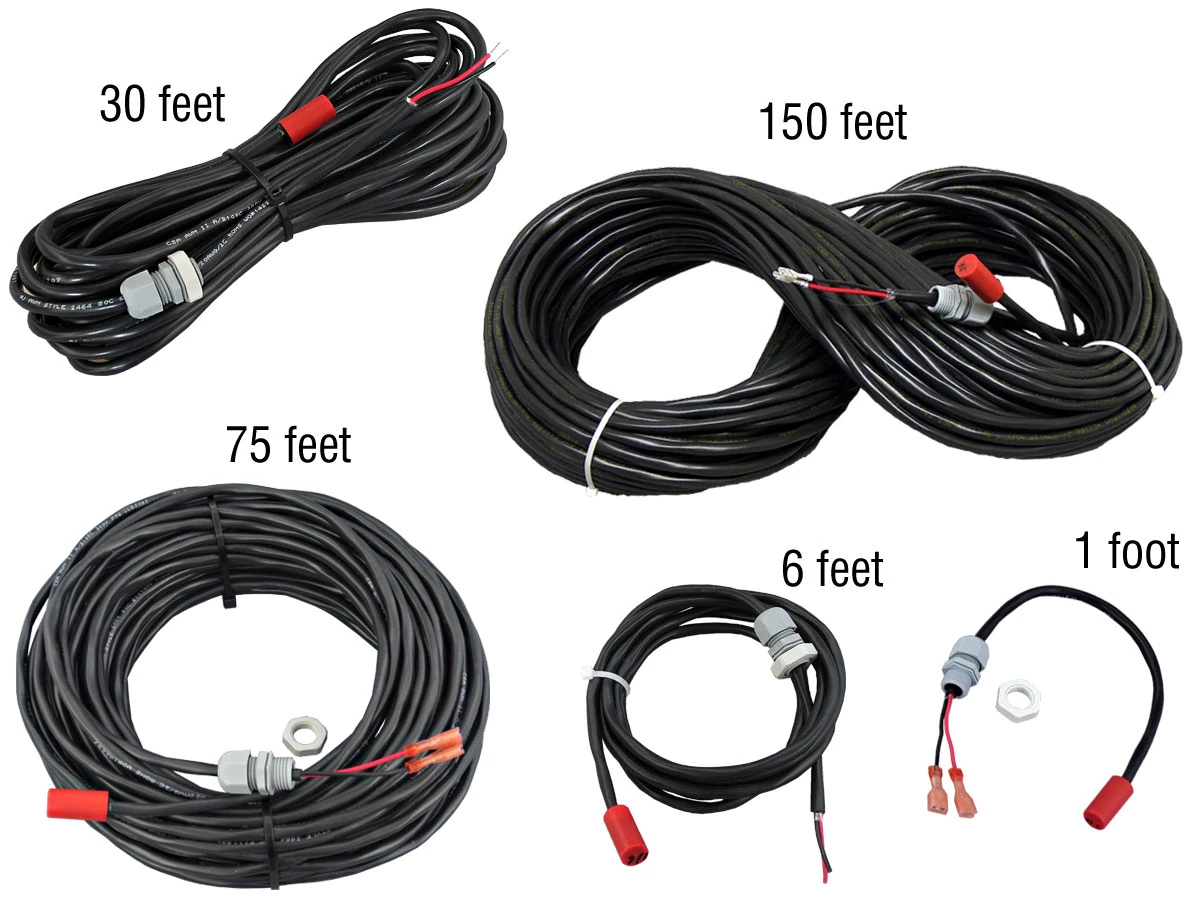
Temperature Sensors
Additional temperature sensors allow you to use 4-zone temperature averaging. Probes are available several lengths and can be extended up to 500 feet using extension cable.
General
How big is the control?
The enclosure is 9 x 7 x 3.75 inches (23 x 18 x 9.5 cm).
How do I display both temperature sensor readings?
See Selecting display options in the user manual.
What new controls have the same logic as the ECC-1?
Currently the AutoFlex Connect is the only other control to offer similar features.
Does it have a manual override?
Yes. There is a software manual override that can be accessed through the control’s menu. For more information see Using manual control mode in the user manual.
Is there a way to change the behaviour based on humidity levels?
Yes. The high humidity bypass allows you to monitor humidity levels and skip the water portion of the cycle and only run the fan portion if the humidity is too high.
Installation
What is the difference between direct and indirect evaporative cooling?
Direct cools animals by soaking them in water that then pulls heat out of them as it is evaporated off of them. Indirect cools the air by inserting and then evaporating water vapour, a process which pulls heat from the air. For a more complete explanation see Understanding Evaporative cooling in the user manual.
Troubleshooting
Why is my fan is running when it shouldn’t be?
Verify the configuration of the fan. Is it dependent, or independent? If it is dependent then it will run whenever a cooling cycle is active. If it is independent then it will run according to the appropriate sensor set point. Verify the set point value for the appropriate sensor. See Programming fan relays in the user manual for more information.

